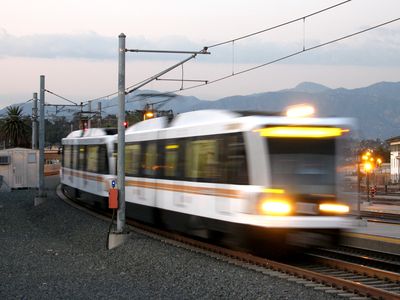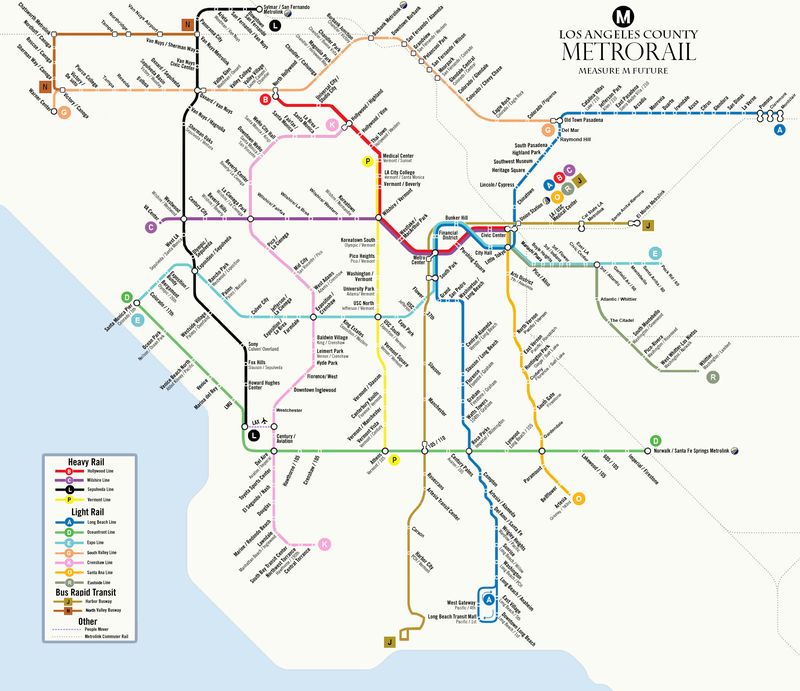
A subway under the Sepulveda Pass and a light rail to Artesia could arrive sooner than expected
Thanks to the voter-approved Measure M sales tax initiative, Los Angeles County will see its transit network grow immensely over the coming decades. Now, Metro is considering partnering with private companies to get some of the projects funded by Measure M dollars up and running ahead of schedule.
The agency announced Wednesday it would review four unsolicited proposals for public-private partnerships aimed at delivering two projects ahead of schedule. Those two projects—the West Santa Ana Branch Transit Corridor and Sepulveda Pass Transit Corridor—could have tremendous impact on travel through the region.
The West Santa Ana Branch project will provide a light rail link between Union Station and Artesia (the name comes from the old streetcar route it follows, not its final destination), connecting Downtown LA to much of the southeastern region of the county. The latter project will add an express lane on the 405 and a subway route under the Sepulveda Pass.
Metro is reviewing two proposals for each project. Pitches for the West Santa Ana Branch Transit Corridor came from construction firms Skanska USA and Kiewit Infrastructure. Parsons Transportation Group and Cintra US Services proposed partnerships for the Sepulveda Pass project.
 Courtesy Adam Linder (infinite3ent@gmail.com)
Courtesy Adam Linder (infinite3ent@gmail.com)The proposals could accelerate construction on the projects considerably, with a press release from county supervisor Janice Hahn, who reps the southeast region, noting that proposals for the West Santa Ana Branch Transit Corridor would speed up the project by 14 to 15 years.
According to the current Measure M project schedule, the line wouldn’t be finished until 2041.
Metro has been courting public-private partnerships for the past few years, and has already received at least eight proposals for Measure M projects. These partnerships could also help fund future projects, such as an express train to LAX that Metro CEO Phil Washington recently announced the agency could look into constructing in the future.
Washington has pushed to find private investments. At a conference in 2015, he said: “They have capital … I believe that the private sector is willing to invest in transportation infrastructure – with a reasonable return, of course … Fiscal discipline must become the norm: partnering with the private sector and not being so prescriptive. I believe that government is too prescriptive in their design specifications and in everything else. I want to be able to evaluate creativity in submittals.”
- Metro advances four unsolicited proposals that could accelerate major Measure M projects [The Source]
- Metro CEO hints at possible express train to LAX [Curbed LA]
- Mesmerizing gif shows how much LA’s transit network will grow under Measure M [Curbed LA]
- Watch how Measure M would grow LA’s rail network [Curbed LA]
